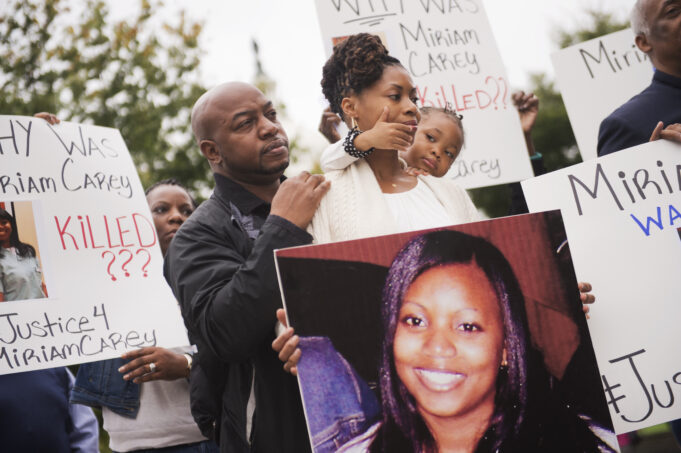#SayHerName campaign celebrates 9th anniversary
by Yaminah Muhammad
NEW YORK—Nearly a decade ago, video showing the gruesome death of Eric Garner, an unarmed Black man, at the hands of New York Police Department (NYPD) officers broke the internet.
The video captured NYPD officer, Daniel Pantaleo, holding Mr. Garner in a prohibited lethal chokehold while multiple officers pinned him face down to the sidewalk. Suffocating, Garner exclaimed the now popularly known words, “I can’t breathe,” numerous times before taking his final painful breath.
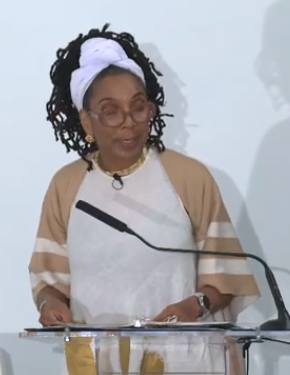
The tragic July 17, 2014, encounter instantly sparked national outrage, bringing thousands of community leaders, activists, and people to the streets protesting police brutality. While the medical examiner ruled Garner’s death a homicide, six months later, a Richmond County grand jury decided not to indict Officer Pantaleo. This sparked protests across the nation.
While protests intensified for the injustice against Eric Garner, some believed that similar injustices against Black women and girls were falling under the radar.
According to African American Policy Forum (AAPF) reports, Black girls as young as seven and women as old as 93 have been killed by police. While Black women make up approximately 10 percent of the U.S. female population, they account for one-fifth of all women and almost one-third of unarmed women killed by the police.
This alarming statistic makes Black women more likely than any other group of women to be killed by law enforcement. Yet, the nation lacked mainstream representation of these disturbing statistics.
To remedy the lack of Black female victim representation in social justice proclamations, in December 2014, the African American Policy Forum (AAPF) and Center for Intersectionality and Social Policy Studies (CISPS) launched the #SayHerName campaign.
The campaign set forth to bring awareness to the overlooked names and stories of Black women and girls who have been victimized by police violence and render support to their families left behind.
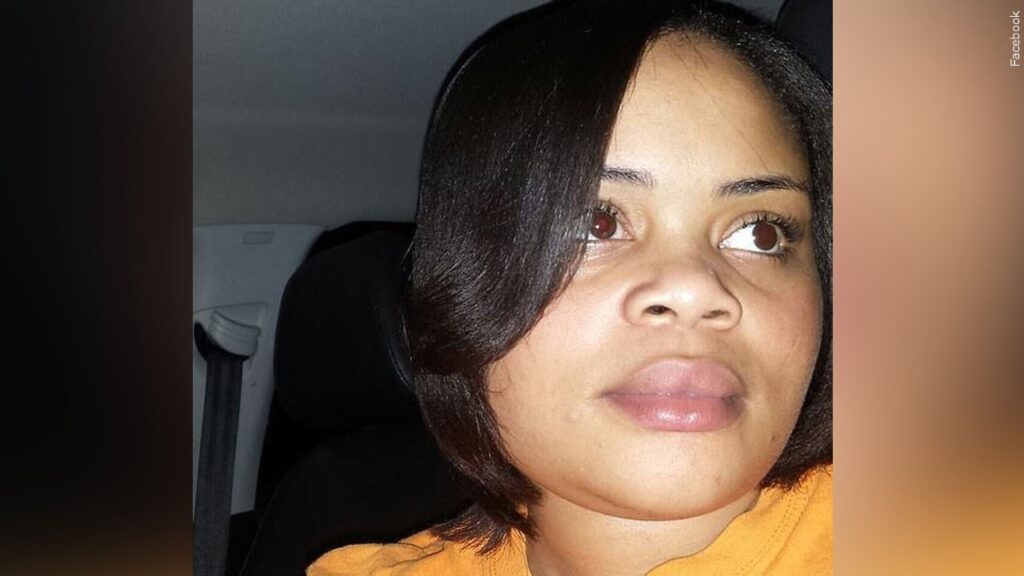
According to the organization’s website, on May 20, 2015, at Union Square in New York City, AAPF hosted #SayHerName: A Vigil in Memory of Black Women and Girls Killed by the Police. For the first time, family members of Black women killed by police came together from across the country for a powerful vigil designed to draw attention to their loved ones’ stories.
The family members of Black women, including Alberta Spruill, Rekia Boyd, Miriam Carey and others, were present and supported by hundreds of attendees, activists, and stakeholders, noted aapf.org.
After nearly a decade of raising awareness and support, members of the community, AAPF representatives and families of the victims, gathered in New York on December 14, to celebrate the #SayHerName campaign’s ninth anniversary.
“We are gathered here today in remembrance of the Black women who have lost their lives to police violence. We are here to say their names in the face of the deafening silence that surrounds their deaths. Their killings and the silence that follows, form the bedrock of this national crisis,” AAPF Artist in Residence Gina Loring said.
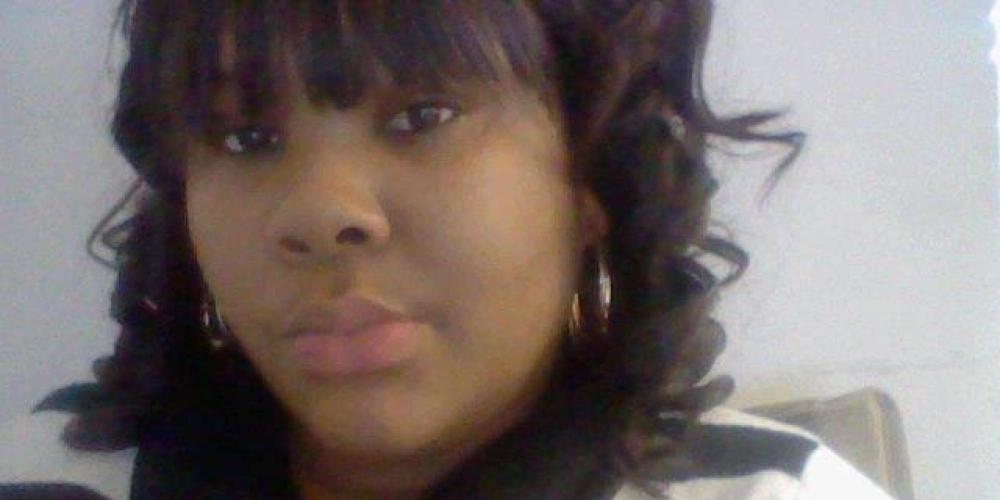
The event, titled “#SayHerName: Black Women’s Stories of Police Violence and Public Silence,” took its name from the newly released book coauthored by AAPF co-founder and executive director, Professor Kimberlé Crenshaw, the AAPF and members of the #SayHerName Mother’s Network. The book aims to provide an analytical framework for readers to understand Black women’s susceptibility to police brutality and state-sanctioned violence.
With Black female storytelling and rituals, it explains how various communities can be mobilized and empowered to advocate for racial justice, including the suffrage of Black women and girls. “#SayHerName:
Black Women’s Stories of Police Violence and Public Silence” represents the culmination of the movement’s key principle to bear witness to the stories of Black women and girls who have been victims of police violence and the impact on their families, all of whom would have otherwise been disregarded.
“The act of bearing witness is at the heart of #SayHerName. It’s at the heart of the book. It’s a central part of our effort to trace state violence against Black women back to its odious roots in enslavement when the bonds that Black mothers had with their families were inhumanely and grotesquely disregarded and denied.
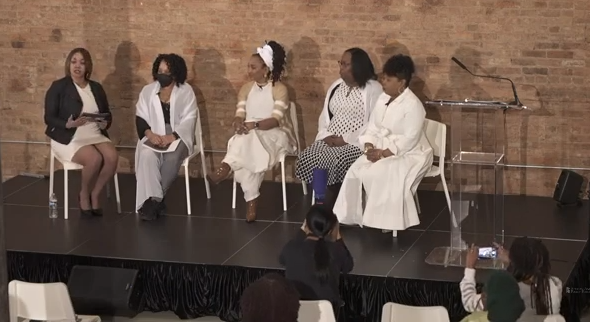
Yet, in the face of all of this, we are also lifted by these survivors’ fearless advocacy for their sister or daughter in the aftermath of their death,” Ms. Crenshaw explained.
Led by emcees and AAPF Artists in Residence Dina Wright Joseph and Gina Loring, the evening opened with the campaign’s signature ritual of remembrance and performances by drummer Afia Walking Tree and AAPF Artist in Residence Abby Dobson. It then flowed into a guided meditation by Imani Samuels.
Later, journalist Kirsten West Savali moderated an advocacy panel featuring Ms. Crenshaw, and advocacy stakeholders Abby Dobson, Rhanda Dormeus and Ashley Carr. The panel discussed how individuals can actively participate in building a community geared toward ending police violence.
To build on the multiple stops of the #SayHerName book tour, the event also featured readings of excerpts from the book performed by Stacey Sargent, Pernell Walker, Kim Yancey and Ms. Crenshaw. In performing these excerpts, the voices and pain of the #SayHerName Mothers Network formed the backbone of the publication and the evening.
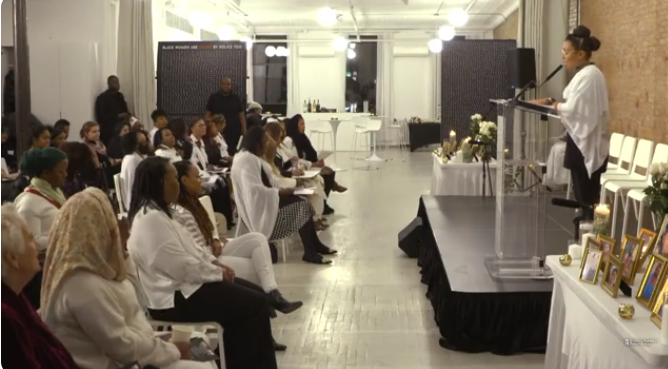
“It was a privilege to know these women during their lives and it is now an honor to commit the rest of our lives to saying their names. As we mourn these lost lives, our movement continues the essential work of raising awareness by bearing witness,” Ms. Crenshaw said.
Through the heartfelt excerpts, the audience heard the tragic stories of Black women such as Atatiana Jefferson, 28, who was killed by a Fort Worth, Texas, police officer in her own home in 2019. And, Shelly Frey, 27, who in 2012 was fatally shot by an off-duty Harris County Sheriff’s deputy working as store security in the parking lot of Walmart, also in Texas.
Ms. Frey’s mother, Sharon Wilkerson, took the stage at the #SayHerName campaign anniversary celebration to express the gratitude she felt hearing her family’s story recalled. Overwhelmed by emotions, Ms. Wilkerson wept as she reflected on the pain she has endured. As her sorrow brought her to her knees, the women of AAPF and #SayHerName Mothers Network surrounded her, covering her with their love and support.
The event concluded with a reception, interactive advocacy-based installation and book signing session featuring Ms. Crenshaw and members of the #SayHerName Mothers Network.
Though the night ended, the mission did not. The #SayHerName campaign continues to strive and fight to make the stories of Black women and girls killed by police a national conversation.












